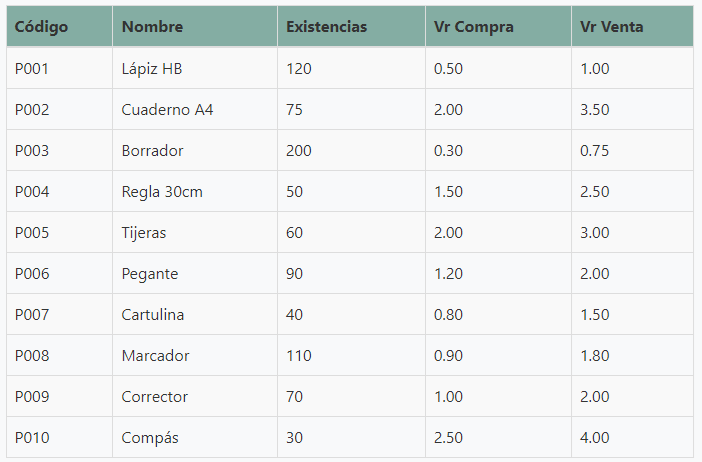How Inventory Management Affects the Profitability of Your Business
The management of inventories is one of the most critical areas of any business that handles physical products. It's not just about keeping a record of stock levels, but also ensuring that inventory levels are aligned with market demand and the company's financial objectives. Proper inventory management can have a significant impact on the profitability of your business. Below, we explore how.

1. Reduction of Operating Costs
Poorly managed inventory can lead to excess stock, which implies additional costs in storage, insurance, and product deterioration. On the other hand, a lack of stock can result in lost sales and dissatisfied customers. Maintaining the right balance between excess and lack of inventory is crucial to minimize operating costs and maximize profitability.
Tip: Use an inventory management system that allows you to monitor stock levels in real-time and make quick adjustments. Our Inventarios1A software offers automatic alerts when inventory levels reach certain limits, allowing you to make informed decisions to keep costs under control.
2. Optimization of Cash Flow
Cash flow is essential for the financial health of your business. If you have too much money invested in inventory that is not moving, your cash flow will be affected, limiting your ability to invest in other critical areas of the business. Efficient inventory management helps to release capital, ensuring that you always have liquidity to take advantage of growth opportunities.
Tip: Analyze sales patterns and adjust your inventory orders accordingly. Implementing an automated system that tracks inventory rotation will help you maintain optimal levels without compromising your cash flow.
3. Improvement in Customer Satisfaction
Having the right product available at the right time is key to customer satisfaction. Poor inventory management can lead to delivery delays, product shortages, and a negative shopping experience. Maintaining a well-managed inventory ensures that you can meet customer expectations, which in turn improves retention and loyalty.
Tip: Integrate your inventory system with your e-commerce platform and other sales channels to ensure that product availability is always up-to-date. Inventarios1A allows real-time synchronization between your inventory and sales platforms, guaranteeing a seamless shopping experience for your customers.
4. Prevention of Losses and Waste
Lack of control over inventory can lead to significant losses due to expiration, damage, or theft. An inventory management system that includes functions such as Kardex or batch control can help you track each product and take preventive measures to minimize losses.
Tip: Implement security controls and periodic audits to identify and mitigate the causes of losses in your inventory. With Inventarios1A, you can keep a detailed record of each inventory movement, making it easier to identify discrepancies and implement corrective measures.
5. Improvement in Strategic Decision-Making
Information is power, and in inventory management, having accurate and up-to-date data is essential for making strategic decisions. A well-managed inventory system provides valuable data on sales trends, product rotation, and replenishment needs, allowing you to plan better and adjust your business strategy.
Tip: Take advantage of the analysis and reporting tools offered by Inventarios1A to gain a clear view of your inventory and make informed decisions that drive the profitability of your business.
Inventory management is not just an administrative task; it's a determining factor in the profitability of your business. Efficient management helps you reduce costs, optimize cash flow, improve customer satisfaction, prevent losses, and make more accurate strategic decisions. By investing in an inventory management system like Inventarios1A, you can ensure that your inventory is aligned with your business objectives, maximizing profitability and long-term growth.





